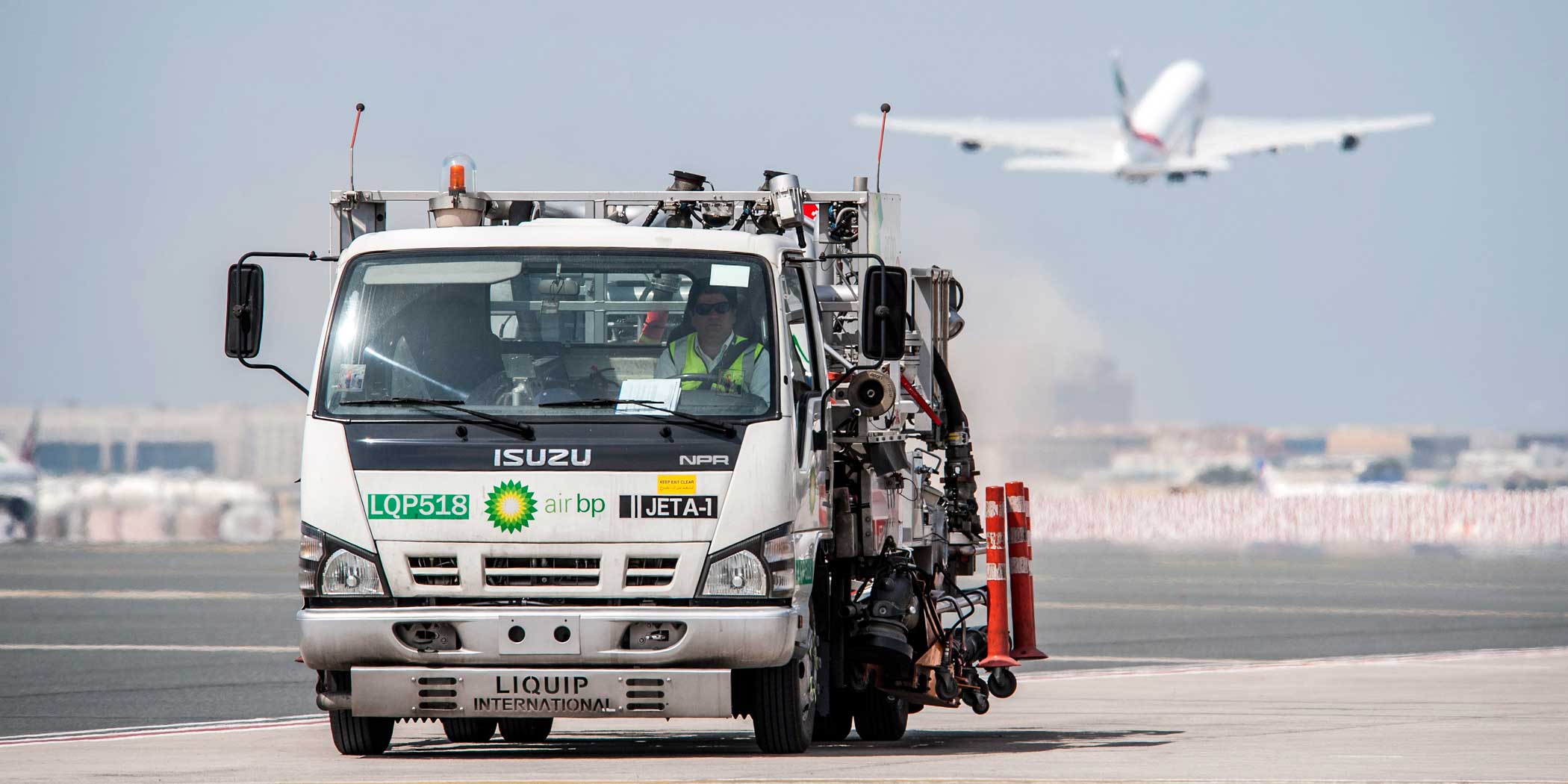Click Here to View This Page on Production Frontend
Click Here to Export Node Content
Click Here to View Printer-Friendly Version (Raw Backend)
Note: front-end display has links to styled print versions.
Content Node ID: 399235
Air BP is in the process of acquiring the hardware and software needed to begin rolling out its Airfield Automation fueling-safety digital platform at all of the airport locations in the Middle East and Northern Africa where it has direct operations.
Robert Gerritsen, Air BP’s general manager for the Middle East and Northern Africa, told AIN that the rollout of the company’s Airfield Automation platform throughout the region will begin at its airport locations in the United Arab Emirates. Air BP expects to complete installation of the cloud-based platform—designed to prevent misfueling of aircraft and to provide operators with real-time data on their fueling activities—at all its UAE airport sites in 2020.
Describing Air BP’s Airfield Automation platform as “a very important strengthening of the safety barrier” in improving aviation safety, fueling reliability and regulatory compliance, Gerritsen said that, in total, the company is planning to roll out the platform at some 350 locations worldwide where it has direct aircraft-fueling operations.
Air BP, which was formed in 1926, now has locations in more than 800 locations in 55 countries worldwide, counts some 350 airlines and 16,500 private aviation operators as customers and more than 46,000 of the company’s instant-fueling-payment Sterling Cards are in use, said Gerritsen. “The vast majority” of those cards are held by private-aviation customers.
Globally, Air BP’s 1,000 employees fuel aircraft at the rate of more than four aircraft a minute on average, according to Gerritsen. In providing this fuel, Air BP is responsible for producing 6.6 billion U.S. gallons of jet fuel annually. It has had a presence in the Middle East since 1932, which for an aviation-fuel company represents a longevity “unique in the region,” he said, adding, “We’re very proud of supporting a number of our customers [in the region] from their start-up days and [various] airports from the beginning” of their operations.
Air BP Middle East and Northern Africa has a presence in the UAE, Bahrain, Saudi Arabia, Oman, Lebanon, Egypt, Tunisia and—its most recently added location—Erbil in Iraq. Additionally, while Air BP does not have a location in Qatar, it counts Qatar Airways as a customer, along with Emirates and Etihad Airways, which together form the so-called “Big Three” Gulf-based carriers. Those carriers, together with Air BP’s other airline customers in the Middle East and Northern Africa, fly to more than 800 locations throughout the world at which Air BP maintains a presence.
Asked about Air BP’s business-growth prospects in his region, Gerritsen responded, “As with all regions, it has its challenges, but the trajectory of the last few years in the Middle East has seen major growth in aviation, and Air BP is growing with that.” In particular, he singled out Air BP’s growth “in recent times” at its Erbil location as being “a very impressive success story.” There, Air BP has cooperated with “the local airport and the authorities to introduce international standards.” The result is proving to be “world-class service, both technical and commercial,” he said.
Gerritsen is optimistic about the future of Air BP’s business in the Middle East and Northern Africa. In part, his optimism stems from the agreement parent company BP and Indian multinational conglomerate Reliance Industries Limited (RIL) signed on August 6 to create a joint venture (respectively 49 percent and 51 percent owned) to manage and grow RIL’s fuels business throughout India.
In addition to operating and growing RIL’s network of automobile-fueling-service stations and associated convenience retailing throughout India, the JV also includes RIL’s aviation fuels business. That business provides fuel at more than 30 airports in India, and Air BP is now RIL’s partner in that business. Not only does the JV’s Indian aviation-fueling business offer “great growth potential” in its own right, said Gerritsen, but it also may provide substantial opportunities for growth in Air BP’s Middle East business because of the enormous passenger-traffic flows between airports in India and airports in the Middle East. “India is a big driver of the economy” in the Middle East, he noted.
While Gerritsen sees growth potential existing for Air BP’s business activities in all sectors of aviation in the Middle East and Northern Africa, “CA [commercial aviation] has been a real success story for the business in the region,” he said. “It’s the stand-out story for this region.”
To date, that success has been linked substantially with the growth of the “Big Three” Middle East-based carriers and of those airlines’ home bases (which are the region’s biggest hub airports), but the other national carriers in the region are now growing quickly, said Gerritsen. This is providing Air BP with additional business-growth potential. So too is the growth of the region’s private-aviation sector, which he said is “very solid.” Many of Air BP’s 16,500 private aviation customers are based in the Middle East and Northern Africa, according to Gerritsen.
As it is doing elsewhere in line with its support for the aviation industry’s commitment to grow sustainably, Air BP is actively growing its aviation carbon-offsetting program throughout the Middle East and Northern Africa. The program—which generates funds used by parent BP’s Target Neutral program to invest in sustainable-energy and sustainable-development projects globally—is already widely used by Air BP’s private-aviation customers based in or flying to and from the region, according to Gerritsen.
This gratifying take-up is a result of Air BP’s partnerships with Alyssum group companies RocketRoute and Victor, he said. Every time a customer uses aviation service-provider network RocketRoute Marketplace or charter-booking platform Victor, the carbon generated by the customer’s flight activity is automatically offset by Air BP. “So all of our [private-aviation] customers get a chance to participate,” said Gerritsen.